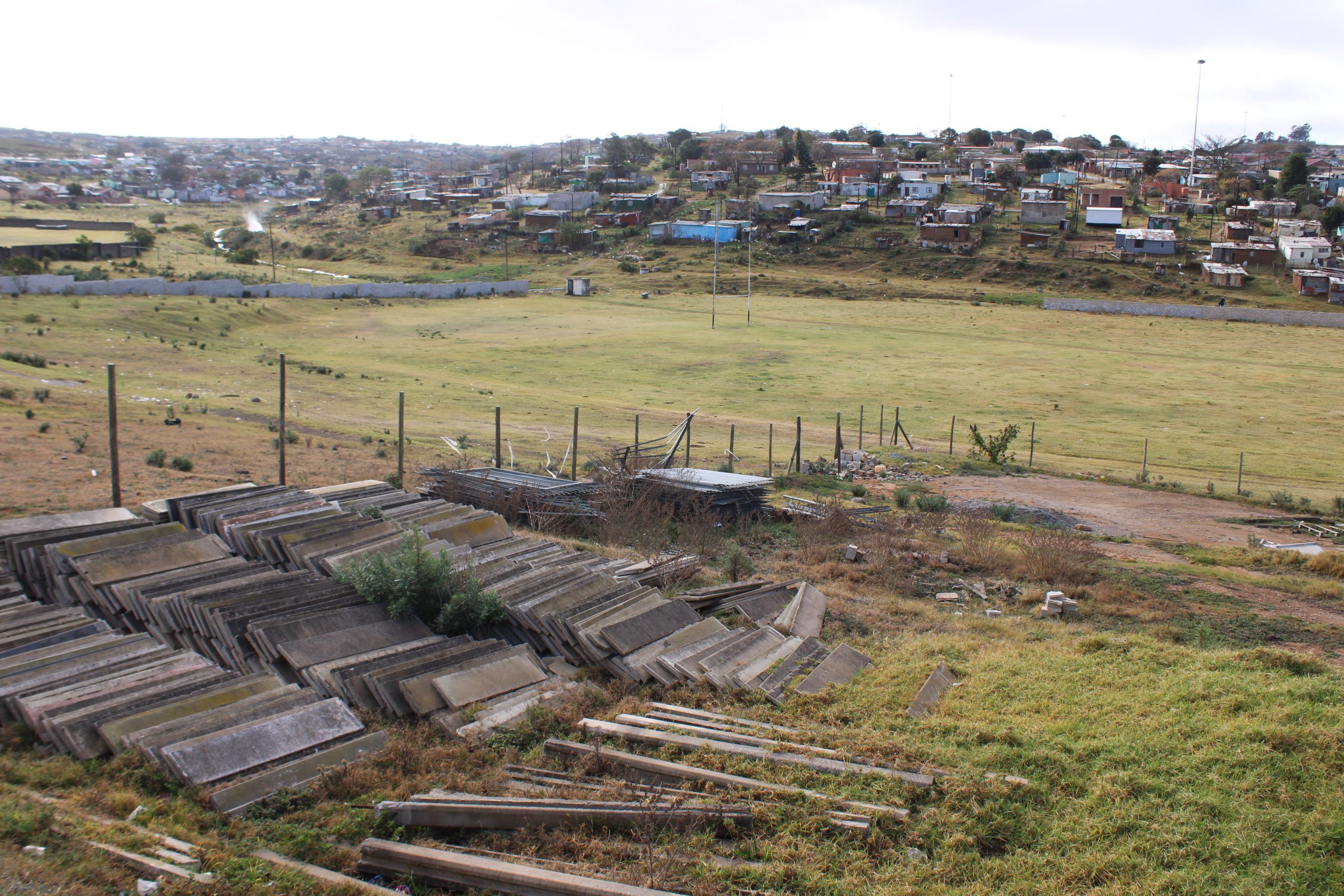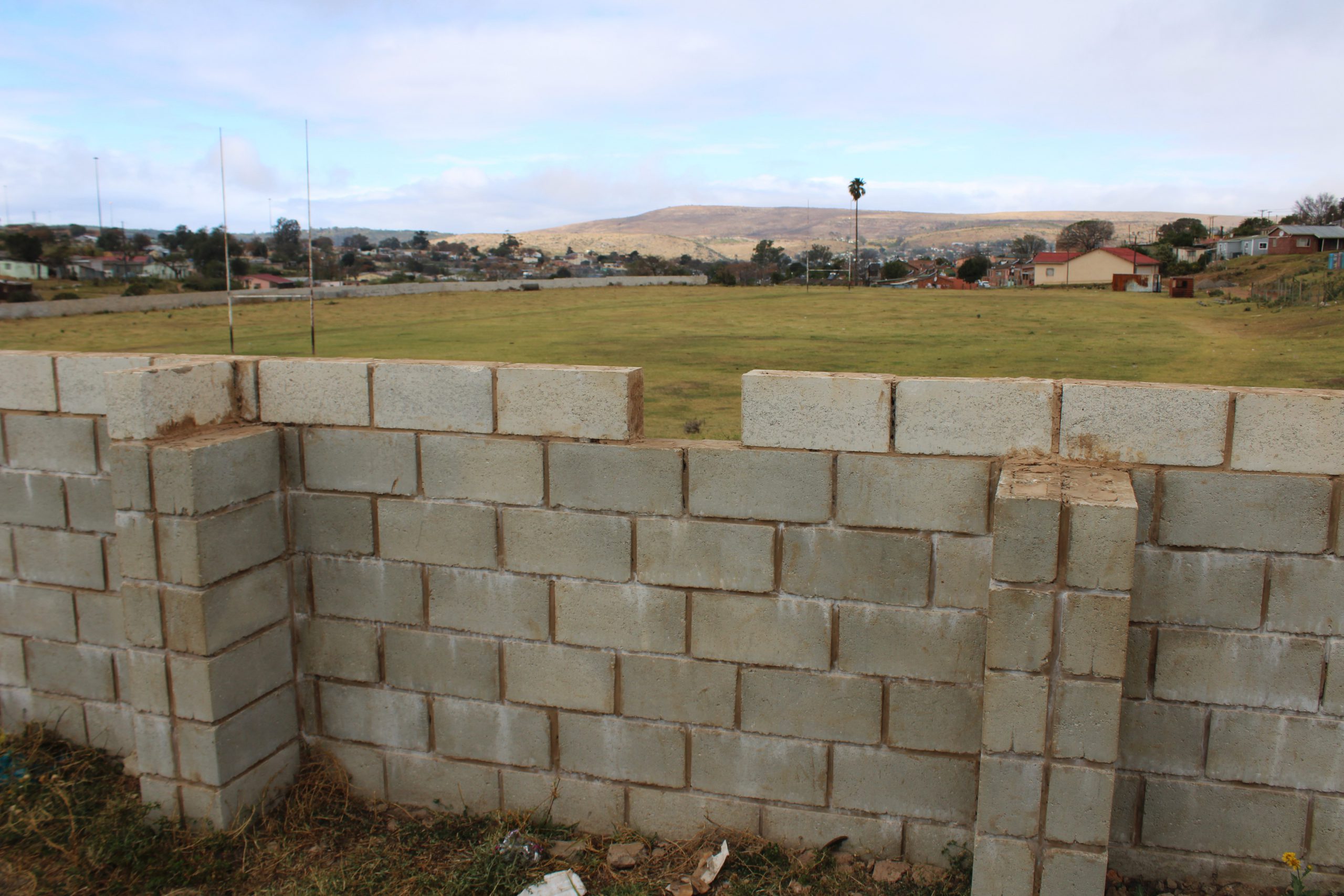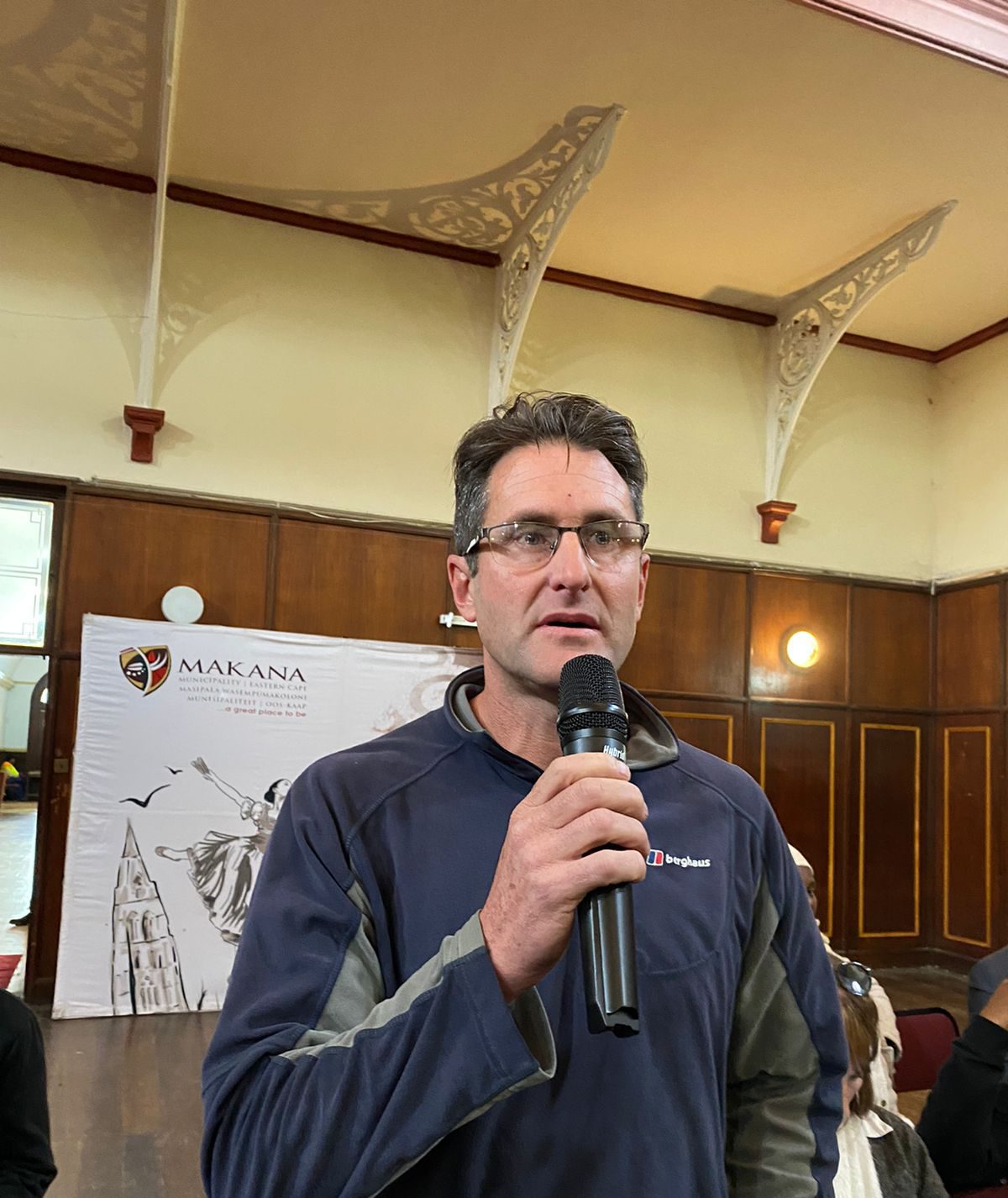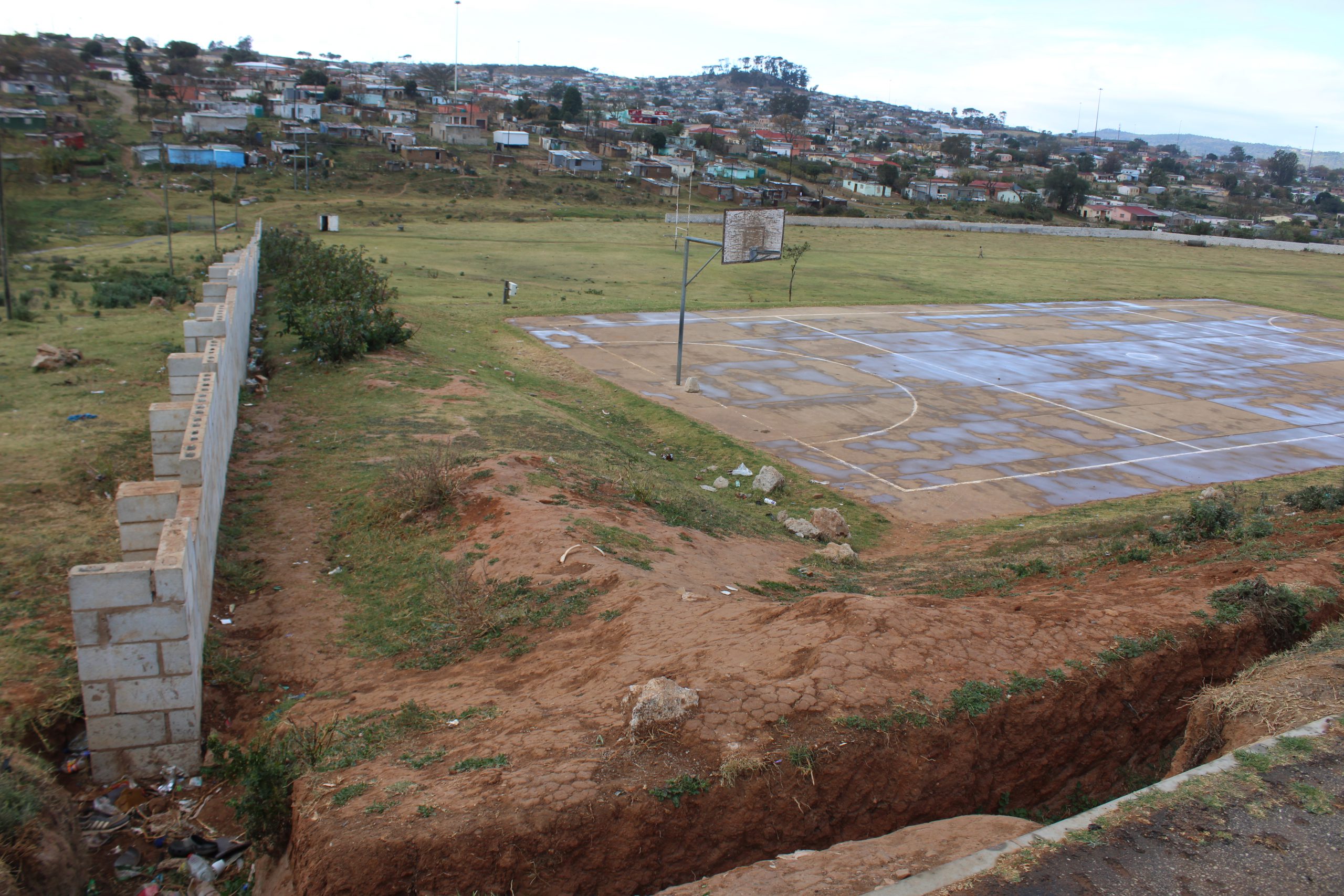By Staff Reporter
The multi-million rand project to upgrade the Oval Sports Ground facilities that has stalled for months, came under the microscope at Makana Municipality’s infrastructure committee meeting last week.
A report released by Democratic Alliance councillor Geoff Embling this week revealed that at the meeting, municipal administration was asked why the budget for upgrading the Oval Sports Facilities in Lavender Valley had ballooned from R4.5 million to over R13 million.
A further question was raised as to why R2.8 million had already been spent on the project, with little visible result other than a partially constructed, miserable-looking concrete block wall, Embling reported.

“The contractor was fired and the project is currently at a standstill, which has led some members of the public to believe that they are at liberty to remove the concrete blocks for their own use.”
Embling said Makana management replied that the R4.5 million budget was for Phase 1 of the project, and that the rest of the budget was for Phase 2. “Regarding the R2.8 million that had already been spent, an official replied that various materials had been purchased but not yet used. However, opposition councillors do not recall any mention of Phase 2 of the project in any previous agendas.”
Residents residing in the area near the stadium expressed unhappiness at the delays, complaining that the lengthy delays in the completion of the project deprived talented youth from expressing their sporting capabilities. 
Some of the work done on the multi-million rand project before it stalled. Photo: Luvuyo MjekulaOther pertinent matters discussed at the meeting, said Embling, related to finance, supply chain and electricity.
“At the start of the meeting, it was noted that this was the fourth consecutive meeting that the Chief Financial Officer (CFO) had failed to attend.”
Infrastructure meetings are held quarterly and, for over a year, the infrastructure committee has been grappling with questions that require a response from the CFO.
The bucket system, shockingly still in use in Makhanda even after 30 years of democracy, also cropped up at the meeting.
Embling said the bucket toilet system is still used in parts of the township, and the agenda stated that during the last quarter, Makana Municipality managed to remove half the buckets that it should have.
Management complained of staff shortages, as there are seven general workers currently used for bucket removal, and six vacancies, he said.
“Makana employs roughly 700 staff at a cost of R18 million per month, and the municipal buildings abound with bureaucrats and idle staff who sit in front of heaters, eat food, and chat.”
The Parks Department employees have been laying low for years, yet Makana can’t employ six general workers for the essential task of bucket pail removal, Embling lamented.

He said a supply chain blockage results in funds from the finance department for routine maintenance of vehicles and equipment not released. According to Embling, it was alleged that the Finance Department was not paying invoices to service providers. “For example, the wheels for Makana’s TLB have been fixed but are not being released by the service provider because Makana has an outstanding account of R11 000 which needs to be paid. This adversely affects maintenance of water and sewage leaks, and road repairs. A grader is standing idle because it needs a blade, and minor parts are needed to fix many vehicles and other tools of trade.”
The roads, electrical, and water/sanitation departments know what they require to get the jobs done, said Embling, but supply chain management and the Finance Department have allegedly adopted the habit of purchasing cheaper, and poor-quality tyres, parts and tools, which don’t last. “Makana failed to purchase a R2.1 million tipper truck, which was budgeted for in the last financial year, and which is a vital asset for the roads department. Makana also failed to purchase a R400 000 bakkie.”
After multiple break-ins at electrical substations, Makana Municipality recognized a pattern and started placing burglar bars on the windows. The electrical team has been working alongside the Parks Department, which was cutting branches under power lines. According to management from the electricity department, this activity unfortunately came to a halt because some residents were so vocal about the municipality “butchering” trees.
“Residents in Grahamstown have reported the lack of streetlights until they are blue in the face, with hardly any result at all. The reason behind this is the budget. Makana budgeted R2.7 million during the last financial year for maintenance of the electricity distribution network.
“Of the R2.7 million, a princely sum of R5 299 was allocated to the repair and maintenance of streetlights, and R2 025.71 was spent in the last financial year. In its budget, Makana rarely notes the number of cents spent, and when asked if these figures were genuine, the officials could not reply, and…the CFO was absent.”
Opposition councillors have considered appealing for Makana to be placed under administration for failing to fulfill its executive obligations, as per Section 139 of the Constitution, but history shows that the likelihood of bettering the municipality via administration is low, Embling explained.
Another option may be Section 154, whereby the provincial treasury, through the Department of Cooperative Governance and Traditional Affairs (Cogta), would send support and intervention for specific areas of failure within the municipality.
“The Finance Department, and supply chain management, seem to be in dire need of support and intervention. Apparently, municipalities have a great dislike for Section 154 interventions,” Embling concluded.


